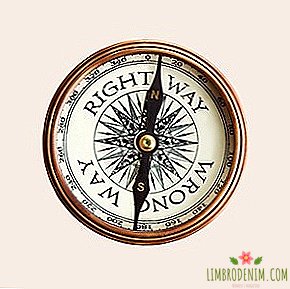Polyamory trainers about relationships with multiple partners
Modern relationship have long gone beyond monogamy: today we can distinguish at least six variants of romantic interaction (and this if we do not take into account individual wishes). Polyamoria, perhaps, causes the most questions - a lifestyle in which one can build equal relations with several people at once. Of course, any relationship is a job, and polyamorous relationships, by definition, require it to a greater extent. Anna Khachiyan found out from experts specializing in polyamoria what it is like for them to work with clients who are building relationships with several partners at once, and what difficulties they face.

Coach A: I received a degree in the discipline "Human Sexuality" more than ten years ago. I graduated from college as a feminist activist and wanted to help women fight for their rights. At the same time, I immediately decided that I would lead this fight in the field of sexuality. At the moment, my work experience is over twenty years, during this time I have been doing a variety of things. For twelve years I taught schoolchildren, fifteen students, I was engaged in medical schools and non-profit projects. I also published books and wrote plays, developed curricula and conducted trainings. Now I focused on helping women, and although I still do different jobs, all of this has one goal.
Coach B:I never understood monogamous relationships, even when I was still in school. I tried to be monogamous, but it never worked: it all ended with me having an affair on the side. True, at that time there was still no terminology describing such a model of relations. In the late 80s I met my future husband; for a while we practiced threesome sex, but then we moved away from it. We tried to follow the idea that one should adhere to the monogamous form of relations, but this did not work again. Since we are not looking for easy ways, we decided to have an open relationship when I was pregnant. Around the same time, we learned about the local online community of polyamors - just then the term "polyamory" began to come into use. My husband and I began to attend meetings of the polyamor, and then organize them - we have been doing this for fifteen years. People began to show curiosity about what we do. They really liked our ideas, which were voiced at events, and they were ready to pay money for participating in them.
Coach B: It all started with my current relationship. I have known my partner for ten years, we have been together for three years. I would call it the love of my life or soul mate. On that day, which we now call the beginning of our relationship, he called me and said that he was polyamor, "it always has been and always will be." Honestly, before that I had never heard of polyamory. We were so strongly attracted to each other that it was impossible to deny it. I joined this new lifestyle because it seemed to be right and suitable for me. I finally got permission to be myself.
In the very first months together we talked a lot and discussed our relationship. From the very first day we were completely honest with each other and open. The longer we were in such relationships, the more often friends asked how we manage to maintain them, how we distribute time between partners and how we cope with jealousy. I didn’t immediately become a coach in polyamory: then I was just starting to learn coaching and at some point thought - why not apply knowledge in this unexplored field?
From practice to theory
Coach A: The theme of sexuality never ceases to attract me, it will never be boring for sure. I work with clients who reveal to me the most vulnerable sides of myself; I take this very seriously and honor their trust. I worked a lot with young people, because during my growing up I and my peers did not have access to quality information about relationships and sex. I did not realize myself as a queer until the age of twenty, because I hadn’t simply had any models to follow, well, or I had no chance to find out about them. Somewhere in 25, I realized that I was a polyamorna, and I have since adhered to this lifestyle. It was in the late 80s or early 90s, and then I really wanted to help people with close life views, so that they would not suffer from isolation just like me. The more I worked with young people, the more I understood the problems and adults. It seems to me that many adults also never received a high-quality sex education and now simply do not know how to behave and get along with their feelings.
Coach B: My husband and I were members of the Universal Church of Life, when we decided to try to advise people on the questions that they asked before marriage. After that, we started a discussion group, and then prepared a workshop, which was presented at the oldest national polyamor conference "Loving More" (30 years old this year). So it all spun. I appeared on the Montel Williams and Tyra Banks show and was interviewed by a Swedish magazine. When I realized that coaching on polyamoria is my vocation, I received a certificate authorizing work in this area. Although my husband and I divorced, I still do it. I was honored by the recent invitation to Portugal for the first European conference on non-monogamous relations.
Coach B: Before I started this work, I was engaged in teaching: I worked with children and adults from different social groups. I had experience and extracurricular work, but I always noticed a tendency to mentoring. Most people feel discomfort at this position, but for me it is just right. I believe that if you feel discomfort somewhere, you need to figure out why, and not hide your head in the sand. Things can be changed only when you realize them, and not ignore them. I have a well developed intuition, I see when people talk about something that they don’t understand, so all my communication with them is aimed at removing negative and victimized patterns from their picture of the world.
Free schedule
Coach A: I lead clients from all over the world, so most of the time I communicate with them on Skype. I have a limited number of them, because I give a lot of strength to everyone. I am an author, speaker and teacher. I have online and personal programs, but most of all I do sex education and emancipation programs. It includes classroom instruction and public speaking. At the same time I can lead from three to five clients, I work with them for half a year. I have certain obligations to each client, so I can not afford to be sprayed on more tasks.
Coach B: I do not have a clear schedule of the day. For the past few years I have been struggling with depression and attention deficit hyperactivity disorder, so I prefer to adjust the mode of work for myself. For the most part I work online or by phone. Usually, I talk with a man for an hour and a half and find out what is happening to him and what he would like to come to - in the context of sex and relationships. I offer them behaviors that, in my opinion, can help them achieve their goals.
Coach B: I do something new all the time. Right now I devote a lot of time to marketing: I master social networks and restart my website. People most often find me online or through word of mouth. I am open to both personal and online sessions. If a client lives nearby, I can meet him in person. But I like to communicate via FaceTime and Skype, because in this case the client is at home, in a comfortable environment. So it is possible to establish a closer and more frank communication with the client than if we communicated in an online chat or via mobile.
Unlabeled
Coach A: My clients can be groups of people in a polyamoric relationship, people in a monogamous relationship, and loners who can be both polyamors and monogamous. I would say I have equally monogamous clients and polyamors, almost all women. Some of them want to create successful polygamous relations, others are working to improve existing ones.
Sometimes clients come without clearly formulated questions, but they want to explore their sexuality and decide that they are interested in trying polyamory. I had clients who became monogamous after the experience of polyamory, but I don’t think they came to me with the goal of working on this. Once I worked with a cool, motivated guy, but more often women want to work on themselves in this area. Most of the men who worked with me came at the request of their partners; on their own initiative, they almost never come. Everything is gradually changing, but so far in our society there are too many cultural and gender norms that do not encourage men seeking help.
We are all different, but definitely there is a type of client I’m focused on - I know who my marketing is directed to. Some people think that I work with those who haven’t had a personal life, but such people are hardly suitable for my advice. In fact, I work with people who need to explore their identity. Most of them are engaged in creative areas, many are entrepreneurs. I think this is due to the fact that entrepreneurship involves a willingness to take risks, and to ask someone for help in order to explore their sexuality, a rather risky venture that can be controlled by self-confident people.
My clients are really interested in their own development, including spiritual development. These are people with a good career and family who have built impressive working and personal relationships and now understand that they need to work on their sexuality to become even stronger. Often they already resorted to yoga and meditation, but they were not enough. I am queer and open to everything new in sex, so, turning to me, people expect that I will be able to understand and help them without condemnation. Despite the fact that I myself am a polyamor, I do not advocate any one way of life - that which suits one does not necessarily suit another.
Coach B: I work with people in unconventional relationships - hence the name of my business "Love Outside The Box". A typical client of mine is someone who is looking for polyamoric or more or less open relationships, perhaps with some experience. Usually people do not come to me who do not understand the topic at all. Many clients want to work on creating a polyamoric family. It may include several adults with or without children (from previous relationships as well). I myself raised two children in a polyamorous family, so I am pretty good at it.
Sometimes polyamorous clients come to me who ultimately decide to become monogamous. I have no problem with this: the client decides what is best for him. I do not advocate polyamory, I advocate for freedom of expression: to be who you want, and only enter into those relationships in which you want.
Coach B: I have different clients. Some are curious and want to know more about polyamoria, so one or two sessions are required with them. Some lead a polyamorous lifestyle, but they have made mistakes and now they want to correct them. My favorite clients are those who already understand what they need to work on specifically, but they need help getting from point A to point B. A client may be people who have been married for ten years, but some of them want to stop being monogamous and afraid of losing existing relationships. This could also be a couple who already had experience with other partners, and now wants to expand their horizons even more.
The relationship is really important agreement. Sometimes people change their lifestyle from monogamous to polygamous and vice versa. I am in favor of trying all options. It is very important that the needs of all parties are met in a relationship. This is not achieved instantly, but it is really in the interests of all the people involved. Once I had a session with a man who wanted to lead a polygamous lifestyle, but his partner was strictly monogamous. I asked him why in this case they should be together. He thought and answered that he wanted to keep the current relationship more than to seek additional ones. If this installation works for you, that's fine. I'm not a big fan of labeling, but for convenience I can call myself polyamor, and my business is coaching on polyamory. But I do not sell or promote polyamory, I just help people achieve what they themselves want.
What customers want
Coach A: The two main problems that people come to me with are related to sexual desire and communication. They are interrelated, but different. The first can be formulated, for example, from "my partner and I want different things or in different degrees" to "I used to feel the desire, but now I don’t" or "I never wanted to have sex, what was wrong with me?". Another thing - when you do not even know what you want. This is most often due to the fact that people are not honest with themselves and others. Another common problem with which women come is the impossibility of reaching orgasm or, in a broader sense, getting pleasure from sex in the desired volume. At the beginning of working with a client, I usually give him a questionnaire, a task to write an essay or an oral exercise. Sometimes I give homework, which is to try new practices or behaviors. This may be some kind of strategy related to sex, or its techniques, or just a conversation with your partner or partners.
Coach B: Often people come with questions on already existing relationships. Sometimes this is a conflict, and they feel that they cannot even talk to their friends or family, because they will not understand their lifestyle. Most often, existing relationships no longer bring pleasure, so they are frustrated. Such clients want someone who understands polyamory to help them figure out the situation. Fortunately, fewer such situations arise over time, but many traditional therapists do not support or even understand polyamory. I, like polyamor, have enough experience to help in such situations.
Coach B: Most people come to me with the problems of identifying their desires or their realization. Everything is in several questions. The first is the question of presence: do you realize exactly your real desires and yourself in general? The second is communication: how are you connected with your partner or partners. Communication - separately: how honestly do you recognize your desires and motivations. I call these three questions pillars, these are the main elements on which I arrange my sessions.
Often people convince themselves that some of their desires are wrong or they are confident that their partner will not approve them. They worry that voicing them will destroy the relationship, or that the partner will fall in love with someone else. All this leads to doubts that accumulate, and people often commit acts only because of fear. It is scary to be vulnerable, there is a lot of uncertainty in polygamy, but it is enough in monogamous relations. The challenge — and beauty — of polyamoric and open relationships is the choice available. Some people call this lifestyle conscious, but in reality it’s just a healthy way. I believe that the more we are open, the more free. I help people get through the awkward moments of finding themselves.
Alarms
Coach A: There were many situations when I had to refuse to cooperate, or because some clients were not ready to work at that moment, or in principle. There are certain signals that I pay attention to and assess if we can work with a client. Sometimes my colleagues listen to a potential client before I speak with him before starting individual or group sessions. We work with people we want to work with. After many years of practice, I realized what signals to pay attention to.
The first is a large number of victim designs that guide the client. Some time after starting work, such a client will surely convince himself that I am a “villain” and make his life worse. It's risky, so I don't want to put myself in such situations. Often these clients do not want to take responsibility for what happened in their lives, or they feel that they are not sufficiently in control of their lives at the moment. They come to life passively, as if everything that happens just happens to them. This is a matter of maturity, which does not always come with age. Therefore, I have very few twenty-year-old clients (the majority are thirty, forty and fifty-year-olds), but those with whom I work are conscious and psychologically ready to work.
Another situation is that a person has a psychological trauma, which should be treated with traditional therapy. Many people who experience problems with sexuality have had sexual experience that has traumatized them or have been condemned for their sexual identity. Such people are not yet ready to work with me, they need traditional therapy, and I am not a psychotherapist. I am sure that there is a big difference between coaching and traditional therapy. If I see that the client has problems that coaching cannot cope with, I will tell him about it, but I will not waste his time.
Coach B: Иногда мне приходится отказываться от потенциальных клиентов или просить их вернуться ко мне позднее. Одна клиентка позвонила мне в начале этого года, и мы вместе решили, что сотрудничать нам не стоит. Она и человек, с которым она хотела разрешить кое-какие вопросы, были не основными партнерами друг для друга. I work with such clients, but the problem was that they hid their relationship from their other partners. I made it clear that I did not support treason, that was my assessment of the situation. The client's assessment was that we are professionally incompatible with her. Perhaps indeed.
Coach B: There are many terms to describe different types of relationships. In short, there is monogamy, where two people build relationships only with each other. In an open relationship, you can make a lot of relationships, but the main partner is still one. There are no main partners in polyamory, you can love as many people as you like. Even in the most progressive types of relationships, a hierarchy is traced, and polyamory breaks this rule. There is also essentially a monogamous relationship in which partners allow themselves to have sex on the side, there is a swing (precise definitions depend on the specific situation). But communication is important in any relationship, it is thanks to her that they work. If someone does not want or cannot support communication, I will not be able to help them.
Love lessons
Coach A: I do not have a medical license. Psychiatrists are required to receive it, because they prescribe medicines, psychotherapists also have a corresponding license. There are several important differences between therapy and coaching. Therapists have limits to working with sexuality. Some coaches, but not all, can use manual practices in working with clients. There are more legal restrictions on the work of the therapist. In addition, therapy is a long process, people sometimes go through it for years. Coaching is a relatively short and more intensive work. This does not mean that coaches ignore the past of the client, but we are more focused on moving forward. I myself went through the therapy and did not notice that the therapists asked many goal-oriented questions. Coaching is aimed at achieving goals.
Coach B: Over the years of practice, I realized that the mechanism of working with polyamorous relations is not specific. It’s just that in a non-monogamous relationship there is often a greater intensity, which causes some of their aspects to develop faster and more intensively. My favorite client is a guy who is not interested in polyamory. Our mutual friend recommended him to contact me, because he and his wife wanted to try something new, and I welcome it. At the moment I have been working with this guy for several years now, we meet once a month and a half. Every time I see him, I give him brochures - this is my way to remind his wife once again that I am not trying to make them polygamous. Relationships are different, but they still have a lot in common.
Coach B: People are relieved to learn that there are specialists like me. One of the complaints that I often hear is that they cannot get the help of a traditional therapist. They usually say that problems arise precisely because of polyamorous or open relationships. Everything I do applies to all types of relationships, so I can be useful to someone who is just looking for a partner or trying to love himself.
Reverse side of therapy
Coach A: Some clients misinterpret our relationship with them: they think that there is something more than cooperation. It happens, it is natural. People often fall in love with those they trust or admire (for example, teachers). There is nothing shameful about this, but relations with any client cannot develop further than professional ones, so I draw their attention to this when I see their delusions. I am sensitive enough to notice when someone is looking for more from communicating with me, and I can quickly put an end to it. I think this is due to the fact that for the most part I work with women.
I received many calls from people who wanted some kind of sexual relationship with me, and almost all of them were from men. We have a well-functioning system of work, so that we can see problem customers a mile away and don’t make such problems happen during cooperation. Honestly, I have nothing against sex as work, it's just not what I do.
Coach B: I like coaching, it's cool to watch this moment when a person begins to understand patterns that he could not see before. This is a very rewarding job. I do not really like the work of its business component. I never wanted to be an entrepreneur, but I had to overcome myself. I also successfully avoided working with a computer before — I don’t really like it, but now I don’t have a computer.
Coach B: Polyamory is now in trend, and this raises some difficulties. This is a new term for the old practice, Google gives out hundreds of pages for the query "polyamory", and our society and culture are really progressing in this key. I think that everything is developing along the same lines as the legalization of homosexual marriages. Now more and more people are learning about open and polygamous relations, but many of them are still scared of the words "polyamory." Still, this lifestyle is often condemned. The reasons may be different. Maybe people are “programmed” or traumatized, or maybe they simply lack the resources to understand others. There is nothing wrong with monogamy, it is a wonderful style of relationships. In any relationship, communication and communication are important. Everyone just wants their relationship, whatever they are, to be as healthy as possible.





